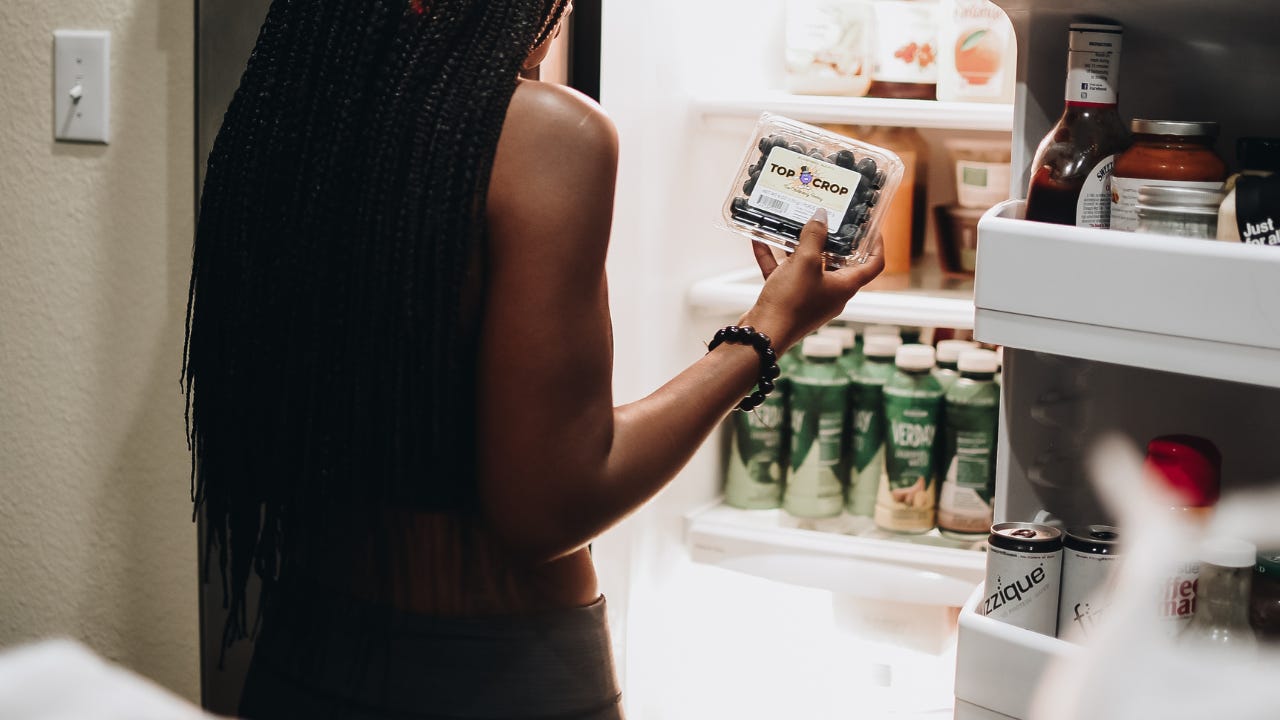Disordered Eating: The Invisible Struggle That’s Been Normalized
How to heal in a world that doesn’t see you’re struggling—and worse, things you have amazing willpower.
You’d think it would be obvious when the constant chatter, criticisms, and thoughts feel so loud inside your own head.
Will I get fat if I eat this?
This food is bad, but I really want it.
Everyone else is eating that, but I don’t know…
And yet, struggling with disordered eating is invisible to the naked eye. Worse, it’s praised. If you’ve had a disordered relationship with food, whether it’s changed the size or shape of your body or not, you’ve likely heard the praise:
Wow, you have such good willpower!
I wish I could be like you.
How do you do it? I’m so impressed.
We live in a world that’s normalized disordered eating, whether you’re restricting certain foods, are hyper-focused on “eating clean,” or some other version of “being good” with your food.
Everyone is doing it.
Celebrities are glorifying it.
Influencers are making money off of it.
This normalization of these behaviors may even be why you’ve been eating and thinking this way for so long. That’s why, when you finally realize you want to heal, you might still feel desperately alone. I know because I’ve been there.
The good news is, there are simple things you can do to minimize that feeling of aloneness as you heal your relationship with food and your body. Here are some strategies that have been helpful for me, and I hope will be helpful for you, too.
Listen to Podcasts
Listening to podcasts early in my healing journey helped me feel so seen. I learned a whole new language around body image, disordered eating, and all the things I was struggling with. Specifically, podcasts that highlight guests’ stories and personal experiences were powerful for me. I found a little bit of myself in each story, reminding me that I was far from alone in both my struggle and my healing.
While there are many great disordered eating and body image healing podcasts to listen to these days, here are some I highly recommend:
Share Your Experience With Loved Ones
Even the people closest to you may not understand how hard you’re struggling. My husband didn’t at first. He didn’t realize that my mind was racing with thoughts about food and my body all day, every day. That it consumed my life. Stole my joy. Stole my ability to be present.
When I opened up to him about how much I was struggling and what I was healing through, he could better support me.
This is so important because healing happens in community. While the deep work likely goes down in a safe 1:1 environment, like therapy, community is necessary for the other 23 hours of the day when you’re not being supported by a professional.
Share your experience with close family and friends who you know will want to support you unconditionally and without judgment. This opens up space for them to check in on you and support you. Plus, having someone you can talk to is helpful for moving through the hard days and, even more importantly, celebrating the wins on your journey!
Curate Your Feed
This may sound obvious—but have you done it? I always mention this because it truly has made ALL the difference in my life. I broke down the process of how I approach curating my feed in a recent Substack post, This is Where I Dramatically Walk Away (JK, That’s Not How It Works), and I’ll share some simple steps for you here too:
Step 1: Unfollow anyone who makes you feel bad, triggers body comparison, or pushes diet culture messages—or simply anyone you don’t want to see. This might include people you’ve followed for a long time. Trust your gut and hit unfollow.
Step 2: Fill your feed with diverse voices and body-positive content. Start with our People We 💜 highlight on Instagram for inspiration, then let Instagram’s recommendations help you find more.
Step 3: Keep unfollowing as needed. Even long-time favorites may stop feeling aligned—and you probably won’t miss their content once they’re gone.
P.S. Get more insights on this in the Season 1 episode of Nope, That’s Not Normal, Less BS, More Peace: It’s Unsubscribe Season, Ya’ll.
This Journey is Invisible, But You Are Not
This work is hard. We live in a world that tells us to do all the things we’re trying to unlearn. Part of healing is being intentional about the little things, like curating your social media feed, confiding in people who love you, and actively listening to the stories of others going through similar experiences as you. If you’re feeling alone, I hope these strategies help you feel seen and supported.
For more insights and ideas like this in your Instagram feed, give Nope a follow. We share diverse insights, stories, and ideas about disordered eating and body image healing. You can also subscribe to our Substack, Nope, That’s Not Normal, where we host our podcast and share articles weekly!





